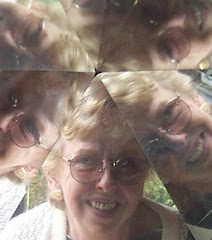Writing’s Dirty Little Secrets
You might think the writer’s strike in Hollywood doesn’t have anything to do with you, other than interrupting your favorite television shows. And it does do that—big time! Generally I’m not a fan of strikes to win concessions in labor disputes because they disrupt the lives of too many people. Strikes like those against grocery chains close down access to food, which we all, even the strikers, need to survive. Strikes by hospital workers can endanger a public in need of vital surgical procedures, or needing a safe, sterile environment in which to recover from a serious illness. Striking seems a little extreme.
Still, even though the writer’s strike might disrupt my TV viewing habits, it’s not going to endanger my life or my welfare. It will hurt those behind-the-scenes people whose livelihoods depend on the television industry for a paycheck, and who are struggling to get by. But maybe this is the only way writers can acquire an equitable share of the enormous income stream their words can generate. A writer works hard on a script, only to see it then be used to create endless income sources for production companies at little or no additional cost to them. Shouldn’t the writer be entitled to a piece of the action?
Here’s what points up the inequities best. If a songwriter writes a song, they get residual payments every time that song is sung anywhere, even if it’s in a private wedding ceremony. How? Songwriters belong to the American Society of Composers, Authors and Publishers, and that organization collects payments from anyplace that is likely to host a musical performance. When you see a piano player in a Nordstrom’s or another retail establishment, the store has to pay a fee to ASCAP to cover the music used. I don’t know, and couldn’t find information on whether someone at each business or venue has to keep a list of all songs played and report them, or if ASCAP simply collects regular fees from these venues based upon an “average” or “estimated” number of songs, then divides it among all songwriters.
We had a friend who was at one time a well-known songwriter and entertainer, and even though he’s no longer alive, his estate will continue to receive residuals from his songs. We knew he received checks every month, but I assumed they were from recording studios as they issued new recordings of his songs, performed by new artists.
For a couple of years we helped out in an RV Park in Mountain View, Arkansas, where music is a vital part of the community and traditions. Our park had a small clubhouse and also a little outdoor shed where pickers and singers could gather to jam. These were usually informal gatherings, in no way sponsored by the park, but still in park facilities. So one day, officials from ASCAP paid our RV Park a visit, demanding a monthly fee because there was an obvious stage in the clubhouse and a sign over the shed that said, “picker’s place.” By the way, Mountain View, the “Folk Music Capital of the World,” focuses on traditional folk and mountain music, so a lot of what is played there is no longer protected by copyright laws, if it ever was. And a lot of non-professional pickers and singers write their own songs. Still, ASCAP was seeking to protect its member’s copyrights.
Photographers and graphic artists generally have their work protected so that they can continue to receive payment if their photos or artwork are used in any other way than that specified in the original contract. Photographers ensure future payments by keeping the negatives of photos they take, even if a client pays them a huge fee to take the pictures thinking they will own their own photos and negatives. Artists and photographer assure their rights by getting a contract signed up front specifying those rights.
It’s not easy to protect writer’s works. Articles, stories, poems, etc. can be copied easily by anyone owning a copy machine, or can be scanned into any computer, making it virtually impossible to protect a writer’s work from illegal use. There is no way to police use of every phrase, poem, story, or larger work.
The other difference between writers and other creative professionals is a strong membership organization or union that supports photographers and artists—and frankly—one difference is tradition. Another is that there are so many writers. Now I didn’t say talented or even good writers, but there are a lot who are more than willing and desperate enough to take any writing job another writer refuses. Until writers unite into one strong organization, such as the Writer’s Guild, and demand fair payment, things will continue as they have always been.
The other dirty little secret
When I first started writing, I read that women writers were often paid less than men, and that fewer writing assignments were available to them. I pooh-poohed the idea since I believed from the start that I could succeed anyplace a man could.
Then I learned the awful truth! I was approached by a magazine publisher to write for their new magazine, and established a pattern of submitting an approximate 1500-word article each month, with photos taken by my husband. In the meantime, a young man assumed the editing position. Then one day my husband decided to write an article about an event he attended. He wrote a good, but brief article with one photo. I edited it and submitted it under his name. When his check arrived, it was 20 percent more than what I had been receiving. I was stunned!
So I discovered firsthand that there sometimes really is a difference in what men and women are paid in the magazine world.
There are a couple of things you can do to prevent being underpaid if you are a woman. I’ve read that some women writers use their initials instead of their first name, and magazines can assume whatever they will. For instance, a name like Barbara Jean Storm becomes B. J. Storm. If you do this, make sure your bank will accept checks made out to you that way. I’ve never tried this, so can’t say whether it works or not, but I don’t see why it shouldn’t.
You can also choose a pen name of the opposite sex. Some men writing romance novels use women’s names as their bylines, and I’m sure there are instances where women writers assume a man’s pen name. Or choose a non-gender specific name like Terry or Jerry.
Pen names are popular choices for writers because they give you a measure of anonymity should you became “famous,” and if your name is difficult to pronounce or spell, a pen name is easier for magazine editors and readers to remember. Since “Kay” is my pen name, when I receive a check made out to Kay Kennedy, I endorse it with that name and then sign my real first name underneath. I’ve never had a problem getting checks cashed or deposited.
Another sneaky way around the problem if you are married is to write the article in both spouses’ names. For instance, the byline would read “By Barbara and John Storm.” I have noticed that a lot of articles appear in various magazines under two names, usually a male and female, and maybe that actually helps sell articles. I can’t say. But that is what I did after realizing my husband’s byline was worth more than mine. I wrote a few more articles for that same prejudiced magazine because they paid promptly, but since my husband always helped with the articles and took pictures, I felt it was perfectly reasonable to use both our names as authors.
Sometimes, a writer’s got to do what a writer’s got to do to make a living in what is apparently, still a biased, sexist society.
And I say to those on strike, Good Luck! We writers may be passionate about what we do, but we have a right to make a living, too.
Saturday, November 17, 2007
Subscribe to:
Post Comments (Atom)


No comments:
Post a Comment